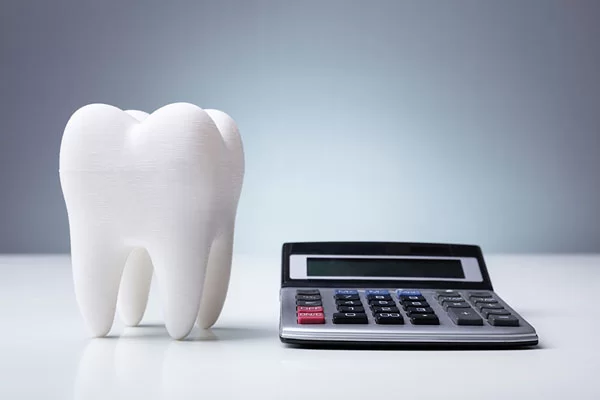Do You Need a Denture Reline?
Dentures are an invaluable solution for many, but over time, natural changes in your gums and jawbone can cause them to fit less securely. When dentures begin to feel uncomfortable, it might be time to consider a reline. This process restores the fit, extending the longevity of your dentures and promoting optimal oral health.
Don’t let poorly fitting dentures affect your daily life. For a professional denture reline, contact our Holyoke, MA, dentist at (413) 538-7400.
What Is Denture Relining?
Relining dentures means reshaping the inside of the denture base to fit the current contours of your mouth. As the jawbone changes due to natural bone loss, dentures may feel loose or uncomfortable. Relining fills in these gaps, helping restore stability, comfort, and effectiveness.
Why Do Dentures Need to be Relined?
The primary reasons for denture relining are changes in jawbone structure, gum tissue, and other factors such as:
- Frequent use: Long-term wear can cause the material to degrade, impacting the fit.
- Oral health changes: Changes due to aging, health conditions, or lifestyle factors.
- Accidents or trauma: Physical impact can alter gum or jaw structure, necessitating adjustments.
Types of Denture Relines
Soft Denture Reline
Soft relines are made from a softer, more flexible material to create a cushion between the gums and the denture base. This type is ideal for patients with sensitive gums.
- Pros of Soft Denture Reline: More comfortable and adapts well to changes.
- Cons of Soft Denture Reline: Requires more frequent replacement and isn’t as durable as a hard reline.
Hard Denture Reline
A hard reline uses durable resin to reshape the denture’s base. They’re durable and long-lasting, making it ideal for a more permanent fit.
- Pros of Hard Denture Reline: A permanent solution resembling the original feel, it lasts longer and provides stability.
- Cons of Hard Denture Reline: It may feel firmer and uncomfortable for sensitive gums, and takes longer to complete than a soft reline.
Temporary Reline
A temporary reline, also known as a therapeutic reline, uses a medicated, soft material to soothe and heal inflamed, irritated, or infected gums.
- Pros of Temporary Denture Reline: Allows gums to heal while providing a temporary comfortable fit.
- Cons of Temporary Denture Reline: Temporary and typically requires a follow-up reline.
The Denture Relining Process
Step 1: Consultation and Assessment
The first step involves a consultation with our dentist in Holyoke. They’ll examine your mouth, assess the fit of your dentures, and discuss the best reline option for your specific needs.
Step 2: Preparing the Denture
Our Holyoke dentist will remove a thin layer of material from the denture base, making room for the reline material. This step is essential to ensure that the new material bonds well and achieves the best fit.
Step 3: Application of the Reline Material
Depending on the type of reline, our dentist will apply a layer of soft or hard reline material to the underside of the denture. The denture is then placed in your mouth to shape the material to the contours of your gums.
Step 4: Setting and Finishing
Once the material has been set, Dr. Eric Chen will smooth and polish the relined denture. The result should be a snug, comfortable fit that matches the current shape of your gums.
Benefits of Relining Dentures
Relining dentures offers many benefits, such as:
- Enhanced Comfort: Reduces gum pressure and discomfort.
- Improved Stability: Less shifting, making eating and speaking easier.
- Better Oral Health: Prevents irritation and potential infections.
- Cost Savings: Regular relining extends the life of your dentures, reducing the need for frequent replacements.
How Often Should Dentures Be Relined?
Most dentists recommend relining dentures every one to two years, but this can vary based on individual needs and the type of reline used. Regular relining can help prolong the life of your dentures and maintain comfort and stability.
Signs You Need Denture Relining
Relining is usually needed when you start noticing any of the following signs:
- Loose dentures: If your dentures move around or slip when speaking or eating.
- Sore spots: Pain or irritation from dentures rubbing against your gums.
- Difficulty chewing: Food becoming harder to chew can indicate a poor fit.
- Changes in speech: Changes in how you speak or difficulty pronouncing certain words.
Average Costs of Denture Relines
In the United States, the cost depends on the type of reline:
- Soft Reline: $300-$500
- Hard Reline: $200-$450
- Temporary Reline: $100-$200
The average costs vary depending on the type of reline you choose, with each option offering different benefits and longevity.
How Long Relines Last?
The lifespan of denture relines varies based on the type used and the care taken. Here’s a breakdown of the different types:
- Soft relines: These need to be done every one to two years, depending on wear and maintenance.
- Hard relines: Can last from one to two years with proper care.
- Temporary relines: Designed for short-term use, typically lasting only a few weeks.
Post-Reline Care for Dentures
After your dentist has relined your dentures, they’ll provide you with instructions on caring for your relined dentures:
- Cleaning: Use a soft brush with denture-safe cleansers to maintain your dentures.
- Avoiding Adhesives: Allow relined dentures to settle without adhesives, as it can disrupt the reline.
- Regular Check-Ups: Schedule follow-ups to assess the fit and comfort of your dentures.
Can You Reline Dentures at Home?
While some may consider relining their dentures at home, professional assistance is generally recommended due to the potential risks and complications. Professional denture relines ensure optimal fit and comfort, utilizing specialized materials and techniques that are difficult to replicate at home. DIY relines can result in improper fit, discomfort, and even damage to the dentures.
Frequently Asked Questions
Denture relining usually takes one to two hours if done in-office, but some types may require sending the dentures to a dental lab, which can take a few days.
After relining, clean your dentures daily with a denture brush and mild soap or a denture cleanser. Avoid using abrasive cleaners or hot water, which can damage the material.
Most types of dentures can be relined, including partial and full dentures. However, some materials, like flexible dentures, may not be suitable for traditional relining.
Maintain Comfort and Health with Denture Relining at Holyoke Mall Dental
If your dentures feel uncomfortable or no longer fit as they should, it’s time for a reline. Our Holyoke dental team is here to guide you through the best options, whether soft, hard, or temporary.
To schedule a consultation, call our office at (413) 538-7400. We’re proud to serve patients in Holyoke, Westfield, Southampton, South Hadley, and Greater Springfield.



